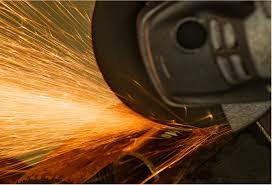


 349,500 Offered Certificates
349,500 Offered Certificates
 24/7 Online Training
24/7 Online Training
 Money Back Guarantee
Money Back Guarantee
 Fully Accredited Courses
Fully Accredited Courses

Created at: 22-02-2025 21:09
Abrasive wheels are vital tools widely used across various industries, including construction, manufacturing, and metalworking. These wheels are specifically designed for operations such as cutting, grinding, and polishing materials. However, when mishandled, they can pose significant safety risks to users and surrounding personnel. This article explores what abrasive wheels are, the risks associated with their use, and the critical importance of proper training and certification. We will also provide safety guidelines and discuss legal requirements within the Irish context.
Abrasive wheels are circular discs composed of abrasive materials that can be harnessed to grind, cut, or shape various materials. They come in different types, including grinding wheels, cutting discs, and flap discs, optimized for specific applications. Common applications include:
While abrasive wheels are crucial tools, they also carry inherent risks. Understanding these risks can significantly reduce the likelihood of accidents. Some of the most common safety risks associated with abrasive wheels include:
Proper training on the safe operation of abrasive wheels is not just beneficial; it is a legal requirement in many regions, including Ireland. Here’s why training is essential:
To maximize safety when using abrasive wheels, follow these general guidelines:
In Ireland, several regulations govern the use of abrasive wheels in workplaces. These include:
For businesses operating in cities like Dublin, Cork, Galway, Limerick, and Waterford, certified training is crucial. Options include:
Investing in certified abrasive wheels training is essential for ensuring workplace safety and compliance with Irish regulations. Don’t wait for an accident to happen—sign up for an Abrasive Wheels Course today to equip yourself and your team with the knowledge and skills needed to handle these tools safely.
For more information or to enroll, please contact us at [email protected].